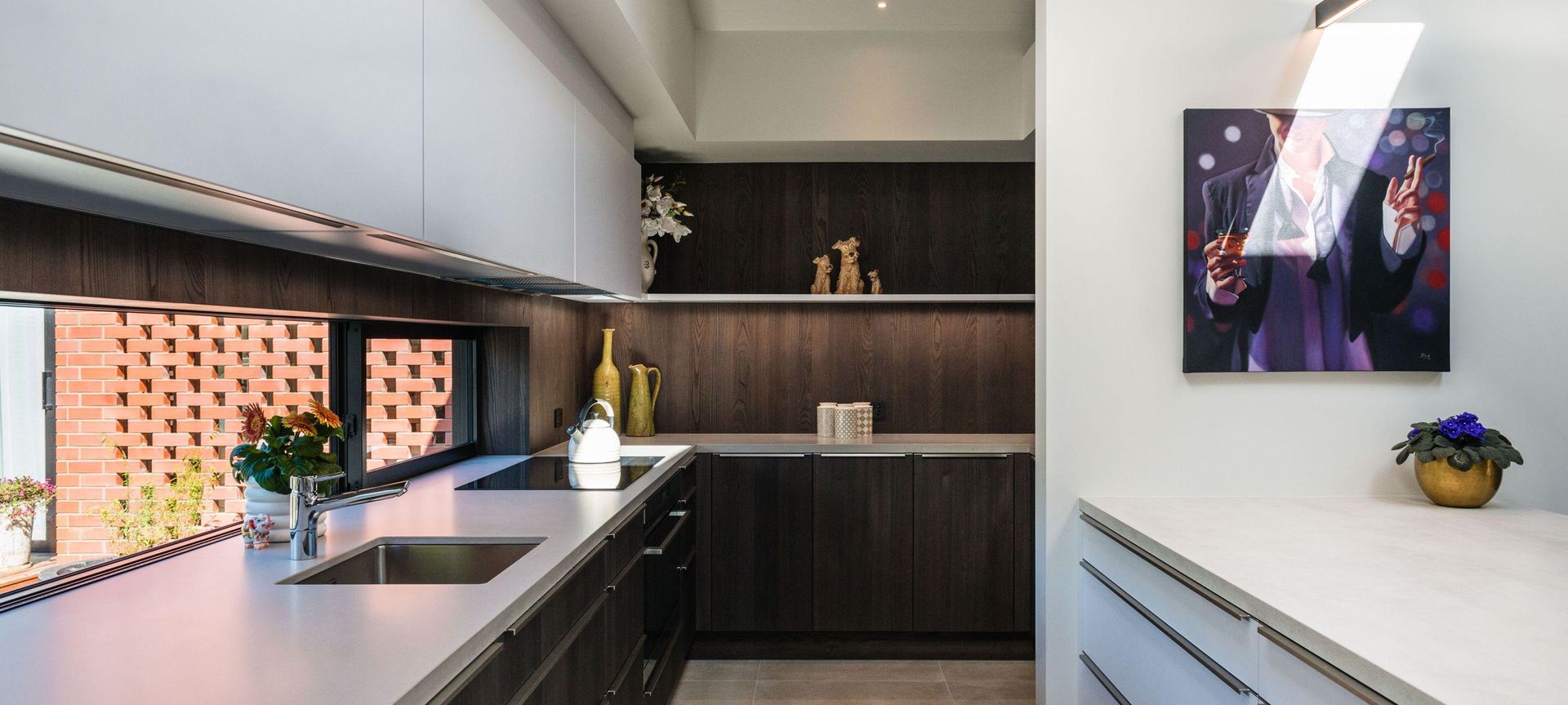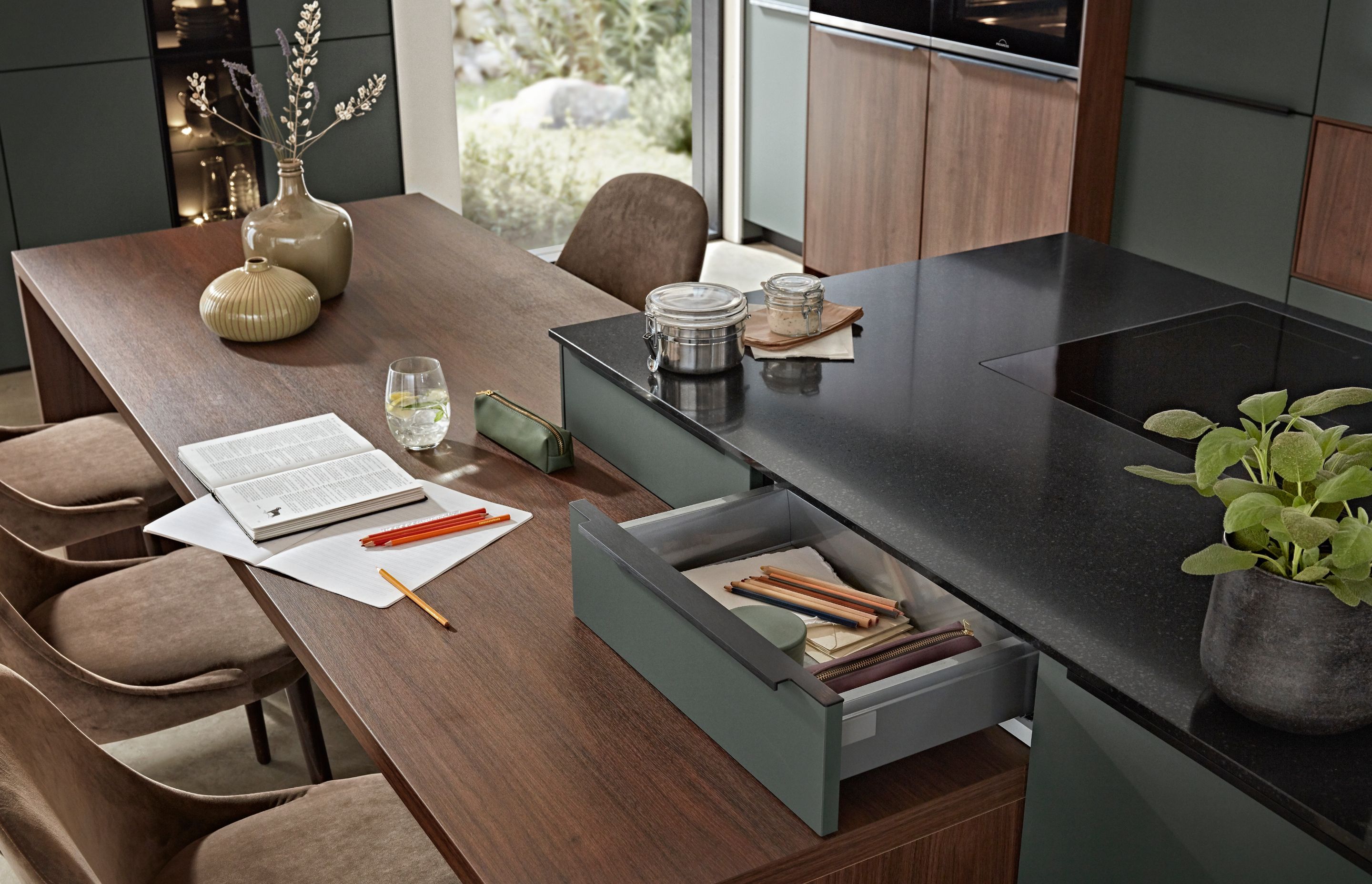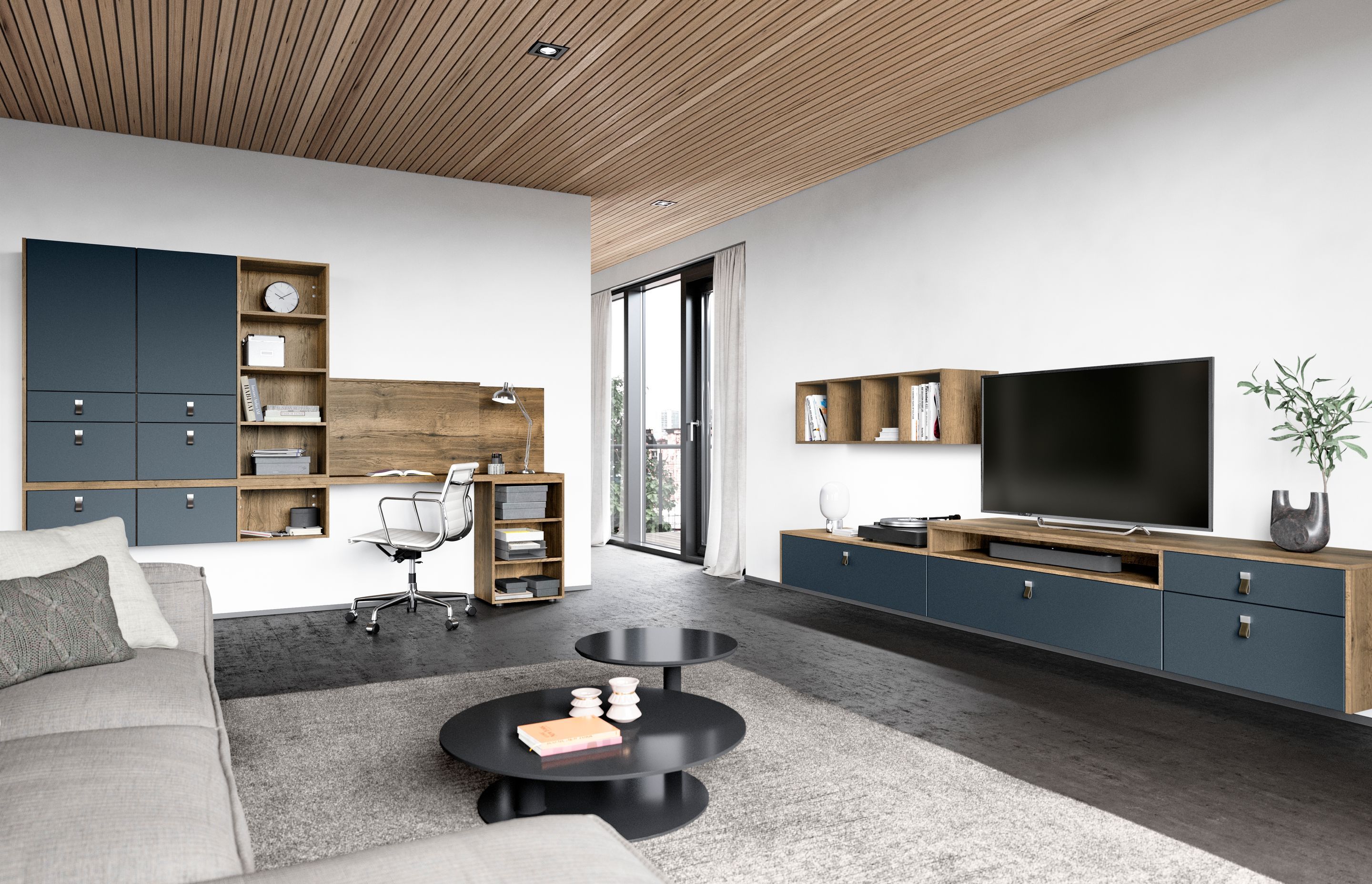Bringing German design to New Zealand kitchens
Written by
21 February 2022
•
5 min read

When Palazzo Kitchens' original owner in New Zealand engaged German company Nobilia 20 years ago, it kicked off a partnership with the company that led to Palazzo, to this day, being the only brand in New Zealand who can design and supply cabinetry from the beautiful Nobilia range. Pair this with locally owned branches nationwide, each with an extensive showroom and locally skilled designers and you have a recipe for success.
One of Germany’s oldest kitchen providers, the benefit of Nobilia’s precision manufacturing and huge economy of scale of their operation has only become more evident for Palazzo over the past couple of years with Covid. Nobilia has continued to produce 3500 kitchens per day and deliver to 90 countries throughout the pandemic — assuring Palazzo clients that their dream kitchen will not be limited by material availability.
Famously, Germany and New Zealand are on the opposite ends of the globe — so one of the most careful decisions made by Palazzo when considering a supplier was its export quality and processes. This ended up being one of the primary factors in its choice of Nobilia as a partner.
With typical German precision, Nobilia maintains an efficient system to fabricate, wrap, pack and transport the kitchens.
“They have perfected the art of allowing a kitchen to be designed in New Zealand, and electronically ordered to Germany,” says Palazzo Kitchens Waikato director and senior designer Nicola Smylie. “They then fabricate the kitchen. Then all the parts are wrapped in cardboard and recycled plastic and packed into a single container — and that container does not get opened until it arrives in New Zealand.”
Upon arriving on our shores, the kitchen is delivered straight to its destination, where the inventory is checked off by the delivery company. Then Palazzo’s installers, some of whom have 20 years of experience in assembling German products, install the kitchen.
“Because of their expertise in all of these areas, we are very happy to be partnered with Nobilia as our primary supplier,” says Nicola.

The kitchen: A more important space in our homes than ever
The kitchen has always been the heart of the home. Throughout different cultures, it’s often the meeting point of the inhabitants of a household: we come home from work or study and prepare evening meals; we host guests across kitchen counters as we prepare a feast for a get-together; we connect with each other over shared plates and wine bottles.
This was how it was before the pandemic — but now with two years of COVID under our belt, it can be argued that the kitchen is an even more important cornerstone of the home than ever.
In the past two years, we’ve spent more time under our own roofs than previously expected, and this has meant that as the focal point of the home, the kitchen has played an outsized role in bringing us together.
This has also meant that the need for a well-functioning kitchen space is more important now than ever before, according to Nicola. The kitchen plays many roles now — a place for food and drink, a communication hub for the household, and often, a workspace — and this means changing how we think about the space as a whole.
“We’re seeing many people open up their kitchen spaces, removing walls, making them more of the living centre of the home,” says Nicola. “We have all been forced to spend a lot more time at home, so why not make it a lovely place to be in?”
Kitchens are now beginning to accommodate the extra functions they have taken on. Many kitchens now have an ‘add-on’ study, semi-connected to countertops or islands; often internet connections are routed through the kitchen; and it’s becoming common to incorporate more comfortable, ‘long-term sitting’ furniture for a hybrid work-cook-leisure space.
“For example, more kitchen benchtops are being designed with table extensions that drop down to a normal table height instead of benchtop-height islands — and this makes the space super functional, but also warm and inviting,” says Nicola. “And this is something that German kitchens do really well.”

Nobilia: Committed to sustainability
Besides its longevity and global recognition, Nobilia is also distinguished by its commitment to sustainability. They were one of the first kitchen companies in Germany to sign up to the Programme for the Endorsement of Forest Certification (PEFC), an international non-profit which promotes sustainable forest management through independent third party certification.
The company uses recycled materials where possible, and plants a tree for every kitchen made. It was also the first kitchen manufacturer to earn the Blue Angel Eco label, is an established member of the Climate Agreement of the furniture industry, has the highest Emission Class A DGM, and has the RKT recycling certificate.
And with all of that comes bundled with a passion for its products, and a commitment to maintain its high export standards through its partnership with Palazzo Kitchens.
“They're passionate about their design, and they're constantly inventing new methods to assemble and deliver. And so they're really pushing the boundaries of kitchen quality.” The environmental certifications on their products can help contribute towards Palazzo clients’ Homestar ratings.
Learn more about Palazzo Kitchens and its range of Nobilia products.